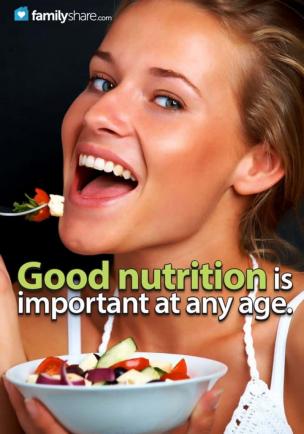
You may cringe after asking your teenager what they ate for lunch today. Teens are not always known for their nutritious choices. Nutrition is very important in teens. Good nutrition affects things like depression, concentration, behavioral issues, and test scores. Poor nutrition can also increase the risk of high blood pressure and heart disease, increase the risk of some cancers, and increase the risk of obesity and diabetes. With all of the benefits of good nutrition, how do you implement it and keep your teen following the plan? Regular, healthy meals are a great way to encourage good nutrition.
Studies show that teens who take part in regular family meals are less likely to smoke, drink alcohol, or use marijuana and other drugs, and are more likely to have healthier diets as adults.
Experts state that teenage boys need about 2800 calories per day and girls need 2200 calories; this amount may lower as they pass through puberty. Often, teens sit down to a healthy dinner, but are not as vigilant about eating breakfast. With busy mornings, it can be difficult to sit down to a healthy breakfast, yet waking up just 10 minutes earlier can help accommodate breakfast. Getting dressed before breakfast will help his body wake up and be ready and hungry for breakfast. If he isn't used to eating breakfast, start slowly. Be practical by offering food that fits your time frame and lifestyle. Don't expect to have a three-course breakfast if you only have time for a bowl of cereal.
Meals are not always the problem; sometimes teens can be picky eaters. Remember that presentation is important. If it doesn't look good, he probably won't eat it. Give your child options for eating out. Encourage him to look for a balance of proteins and fruits or vegetables, replace soda with water or milk, and order baked, broiled, or grilled food items, instead of fried. Let her know that it is her overall intake that is important; she should know it is permissible to eat some unhealthy things. One suggestion with the unhealthy foods is to share it with a friend so that she eats less.
Despite your efforts to feed your teen healthy meals and snacks, you may still run into struggles. Have a practical conversation with your teen and help them understand why good nutrition is important. Hold them to the same nutrition guidelines as adults. Maintain your help and example and know that it does not go unnoticed.

